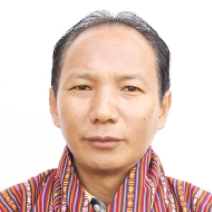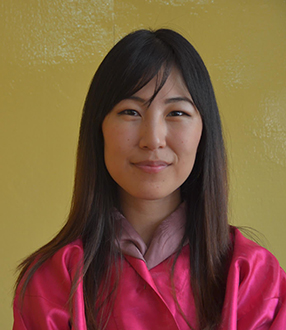The RIGSS Blog
To stimulate analysis, innovation, and forward thinking, and generate new ideas and insight
on subjects that matter in 21st Century Bhutan.
A humble tribute to celebrate learning, leadership and service that His Majesty The King continues to champion.
The views and opinions expressed in the articles on the RIGSS Blog are that of the authors and do not represent the views of the institute.
POST VACCINATION DILEMMA

Director, RIGSS
Listen to this article 9 minutes
Many countries worldwide seem to be going through a big dilemma as to how to go about life post-vaccination. From Singapore to Saudi Arabia, Germany to Canada, UK to the US, different countries are taking different measures to deal with their own vaccinated people or vaccinated foreign travellers. This dilemma is understandable for the simple reasons that we have no prior experience, the pandemic is evolving rapidly and researchers are struggling to keep pace with the raging pandemic now coming in newer and deadlier manifestations. There is so much the world doesn’t yet know about the coronavirus.
In Bhutan, too, people are asking all sorts of questions about post-vaccine life and relaxations, some seemingly believing that we are done with the virus now that most citizens are inoculated. That Bhutan has been hailed the world over for its successful vaccination campaigns is certainly great news for our country, but we cannot afford to get carried away or become overconfident by this shot of success. We should indeed continue to do more of what is wise to keep saving lives and setting examples.
With over 65% of its population vaccinated, Bhutan is now at a crossroads; the path we choose to tread from here might be a game changer. Any miscalculation could not only undo all the good work that we have done so far under the wise and selfless leadership of His Majesty The King, but it could also turn out to be catastrophic for a country with such a small and fragile health infrastructure like ours. The last thing we would want our decisions to be influenced by is overconfidence.
COVID-19 cases are rising again the world over, including in our own neighbourhood. India, Bangladesh, Thailand, Malaysia etc., have all reported a rise in cases in recent days. In Vietnam, a country considered one of the most successful in combating the virus, cases increased over ten-fold in recent days and soldiers in hazmat suits were seen spraying disinfectant down the streets in Hanoi. In China, in what is reported to be the worst outbreak since Wuhan, hundreds of people recently tested positive in a fresh wave of infections believed to be triggered by the Delta variant. New restrictions have been imposed and millions of people are being tested to control the spread of the virus. And in the west, countries like the US relaxed restrictions for vaccinated people only to reinstate them with the sudden surge in cases in recent days.
Back home, we have thankfully not seen cases surge by the thousands. Still we must bear in mind that the high-risk areas in the south, particularly Phuentsholing, have reported almost non-stop community cases for close to four months now. While this can be attributed to a number of assumptive factors, the fact that the Delta variant was found to be responsible for 87% of infections in the country should not be forgotten. And as more contagious variants emerge, the probability of their spread to other parts of the country from high-risk areas cannot be completely ruled out, despite having the most stringent measures in place.
We may be vaccine-protected, but the war with the coronavirus seems far from over. There is a great deal of uncertainty and unpredictability surrounding the virus and the protection offered by the vaccines. The WHO has listed four emerging variants as “Variants of Interest”, including the Lambda variant, which is now detected in some 29 countries. A “Variant of Interest” is believed to have the potential to be more contagious and virulent and escape vaccine protection.
“In a paper posted on Wednesday on bioRxiv ahead of peer review, the researchers warn that with Lambda being labelled a "Variant of Interest" by the World Health Organization, rather than a "Variant of Concern," people might not realize it is a serious ongoing threat. Although it is not clear yet whether this variant is more dangerous than the Delta now threatening populations in many countries, senior researcher Kei Sato of the University of Tokyo believes "Lambda can be a potential threat to the human society.”” (Reuters, 3 August 2021)
While data from some vaccine manufacturers have shown protection of at least six months after the second dose, the Centers for Disease Control and Prevention (CDC) on its website says it is still learning about “how long COVID-19 vaccines can protect people” and “how effective the vaccines are against new variants of the virus that cause COVID-19”. In the meantime, in a pre-print document published by the UK government, an analysis by British academics reportedly said that they believe it is almost certain that a SARS-Cov-2 variant will emerge that leads to current vaccine failure. They recommended that authorities continue to reduce virus transmission as much as possible to reduce the chances of a new, vaccine-resistant variant (CNN, 1 August 2021).
Many studies have reportedly shown that vaccinated people are not fully immune to getting infected with the virus. New research suggests that “among people infected by the Delta variant of the coronavirus, fully vaccinated people with "breakthrough infections” may be just as likely as unvaccinated people to spread the virus to others” (Reuters, 3 August 2021). Just a week ago, the CDC revealed in its Morbidity and Mortality Weekly Report that 75% of patients in a cluster of 469 cases in Provincetown, Massachusetts, were vaccinated (The Harvard Gazette, 3 August 2021).
This is important for us to note because we have close to 150,000 children below the age of 12 years (PHCB 2017) who are not yet protected by vaccines. If vaccinated people let our guard down and do not follow safety protocols after vaccination, these little children at home or spread across primary schools and ECCDs in the country become easy targets for the virus.
Whether the world will achieve global herd immunity, and in how many years, is a subject of current study by experts. However, with just 15.2% of the world population being fully vaccinated as of 6 August 2021 (Our World in Data), it seems a far-fetched dream, if at all possible. And we know that the more the virus gets to spread, the more chances it has to undergo change (mutate), producing newer and possibly deadlier variants in the process. In addition to the vaccines, the only other ways by which we could prevent the virus from spreading and mutating are to avoid crowded places, wear facemasks, maintain physical distance and wash hands with soap regularly, irrespective of whether one is vaccinated or not.
We may have thankfully achieved one of the highest vaccination records in the world, but we sit in a region where the vaccination landscape is completely different. As of 6 August 2021, India’s fully vaccinated population stands at 7.95%, Bangladesh at 2.70%, Thailand at 5.99% and Nepal at 7.31% (Our World in Data). And experts have warned us repeatedly that “no one is safe until everyone is safe.”
We are perhaps at a phase in the pandemic where we need the most aggressive education and advocacy than ever before. It doesn’t suffice that only educated people who catch up with the latest news about the pandemic or those involved in COVID-19 assignments know about the virus or the vaccines. The larger mass needs to understand how the overall pandemic situation is evolving worldwide and in our country, and the various unknown variables in the equation that (should) inform individual and government decision-making.
As a developing country, we may be lacking in resources and capacity. But the farsighted and selfless leadership of His Majesty The King, the political will in the government and the solidarity of our people are resources that no amount of money can buy. More than ever before, we realized this throughout the current pandemic. With the blessings of such priceless resources, Bhutan should be able to fight this pandemic till its very end, and win. And great victories are never accomplished through choices made or decisions framed in haste or overconfidence.
The writer is the Director of the Royal Institute for Governance and Strategic Studies (RIGSS) and a member of the Southern COVID-19 Task Force. The views expressed in this article are his own unless otherwise cited.
EARLY EDUCATION IN RURAL BHUTAN

Master's Candidate, LSE. Planning Officer, GNHC
